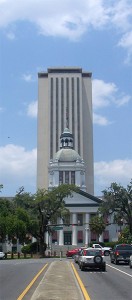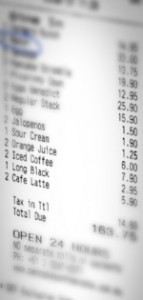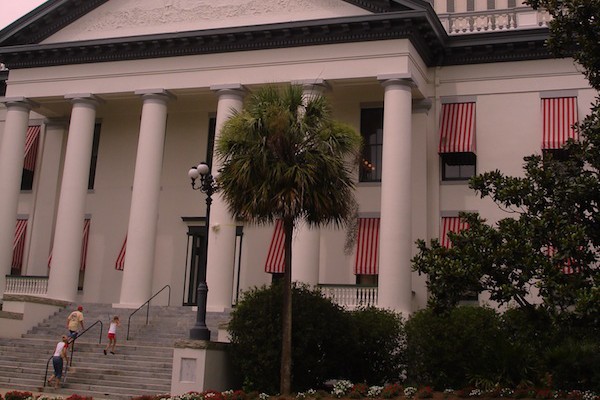“No man’s life, liberty or property are safe while the Legislature is in session.” This timeless zinger, often misattributed to Mark Twain, might easily be expanded to include home rule—the simple principle that government closest to the people tends to govern best. Over the last few years, this timeless cornerstone of American self-government has taken more than its fair share of bipartisan fire in both Tallahassee and Washington.
This year, however, Florida’s lawmakers have had their hands full with the job of redrawing the Sunshine State’s legislative districts. Consequently, home rule seems to have survived 2015 largely intact. It’s not “all good news,” per se. Yet, as is often the case in legislative matters, no news is good news.
Here’s our take:
 When “tax-cutting” is really just “cost-shifting.” It’s one of Tallahassee’s favorite past-times: Boost spending, cut taxes and then pay for the difference by kicking costs down to local communities. Of course, that bill ultimately gets paid by local taxpayers, like you. This is an awfully convenient way for politicians to burnish tax-cutting credentials without making tough budget choices. In recent years, some legislators have attempted to rework taxes on property and leases in away that would create the illusion of tax cuts but invariably leave local taxpayers holding the bag. In fact, voters explicitly rejected one such measure in 2012. Fortunately, these tax-shifting bids didn’t make it very far in 2015. Unfortunately, some interest groups are planning to revisit the issue next year. So, 2016 taxpayers beware: Some politicians have become very good at delivering tax cuts with one hand and de facto tax hikes with the other.
When “tax-cutting” is really just “cost-shifting.” It’s one of Tallahassee’s favorite past-times: Boost spending, cut taxes and then pay for the difference by kicking costs down to local communities. Of course, that bill ultimately gets paid by local taxpayers, like you. This is an awfully convenient way for politicians to burnish tax-cutting credentials without making tough budget choices. In recent years, some legislators have attempted to rework taxes on property and leases in away that would create the illusion of tax cuts but invariably leave local taxpayers holding the bag. In fact, voters explicitly rejected one such measure in 2012. Fortunately, these tax-shifting bids didn’t make it very far in 2015. Unfortunately, some interest groups are planning to revisit the issue next year. So, 2016 taxpayers beware: Some politicians have become very good at delivering tax cuts with one hand and de facto tax hikes with the other.
 Florida’s water supply: Still vulnerable. The key economic drivers of Florida’s prosperity remain tourism, agriculture and development—all industries that rely heavily on a clean, abundant supply of water. At a time when some states are in the throes of a water crisis, it’s vital that Florida improve the financial capacity of local and regional organizations to develop new water supplies and protect the quality of existing ones. Let’s be honest: This is not a terribly exciting issue, but it is a very important one. Lawmakers must take action on this issue—before our state’s water problem evolves into a water crisis.
Florida’s water supply: Still vulnerable. The key economic drivers of Florida’s prosperity remain tourism, agriculture and development—all industries that rely heavily on a clean, abundant supply of water. At a time when some states are in the throes of a water crisis, it’s vital that Florida improve the financial capacity of local and regional organizations to develop new water supplies and protect the quality of existing ones. Let’s be honest: This is not a terribly exciting issue, but it is a very important one. Lawmakers must take action on this issue—before our state’s water problem evolves into a water crisis.
 Raising sales taxes to cut property taxes—a tale of unintended consequences. In a bid to reduce the number of people paying property taxes, some legislators are plugging a “tax swap” proposal that would hike sales taxes on everyone. Such a swap would overexpose the Sunshine State to fluctuations in sales tax revenue. It might even cook Florida’s golden goose—tourism—by pricing many potential visitors out of the state. If just a fraction of Florida’s tens of millions of annual visitors take their tourist dollars elsewhere, it could strip billions from the state budget and leave Tallahassee lawmakers thirsting for new sources of revenue. With fewer tourists to tax, legislators would face pressure to raise sales taxes even higher, punishing tourism even further and precipitating a tax-and-tourism death spiral. Moreover, Sunshine State businesses that border Georgia and Alabama could suffer greatly as Floridians cross state lines to do their shopping in places where sales taxes are much lower. Although this issue failed to gain traction in 2015, lawmakers may revisit it next year.
Raising sales taxes to cut property taxes—a tale of unintended consequences. In a bid to reduce the number of people paying property taxes, some legislators are plugging a “tax swap” proposal that would hike sales taxes on everyone. Such a swap would overexpose the Sunshine State to fluctuations in sales tax revenue. It might even cook Florida’s golden goose—tourism—by pricing many potential visitors out of the state. If just a fraction of Florida’s tens of millions of annual visitors take their tourist dollars elsewhere, it could strip billions from the state budget and leave Tallahassee lawmakers thirsting for new sources of revenue. With fewer tourists to tax, legislators would face pressure to raise sales taxes even higher, punishing tourism even further and precipitating a tax-and-tourism death spiral. Moreover, Sunshine State businesses that border Georgia and Alabama could suffer greatly as Floridians cross state lines to do their shopping in places where sales taxes are much lower. Although this issue failed to gain traction in 2015, lawmakers may revisit it next year.
On balance, home rule didn’t fare too poorly in 2015. However, that’s no guarantee of future success. On the contrary, Tallahassee’s focus on redistricting and other matters is only temporary. Next session, local control advocates must be prepared to vigorously make their case to lawmakers to protect “life, liberty, property” and the timeless tradition of home rule.


Leave a Reply
You must be logged in to post a comment.